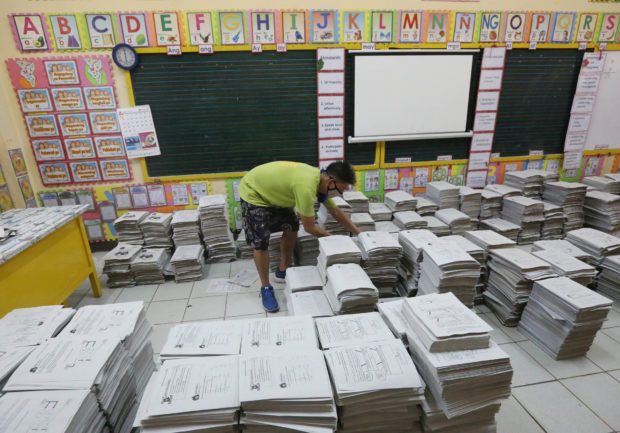MANILA, Philippines — Senators and the Commission on Higher Education (CHEd) on Wednesday, August 5, 2020, urged private schools to justify recurring tuition and other miscellaneous fees at a time when several universities have already shifted to online instruction during the pandemic.
In a Senate hearing on online learning in college, Senator Imee Marcos said they had been receiving reports that some schools have not been transparent enough on where the tuition and other fees would go.
“Why are they asking for laboratory fees, medical fees, internet fees when nobody will go to the laboratory, nobody will use computers in schools, there is no face to face? … Let’s investigate the tuition?” she said, vowing to pass Resolution No. 480, to investigate the matter.
Sen. Pia Cayetano seconded the suggestion as it is “only fair” that higher education institutions constantly update the parents and students about the recurring costs.
Julian Tarriela, national convener of the Students’ Rights and Welfare Philippines (Straw), noted that some universities still lack transparency on how tuition and how rebates are computed.
“They still charge students with fees despite class interruptions. There should be some sort of intervention in addressing transparency concerns in how they compute their tuition,” he said.
CHEd Chair Prospero de Vera III said at least 89 of the 400 private universities had pursued an application for a tuition increase.
“[But] the problem is not the application for tuition increase but the existing tuition being collected. The parents and students do not understand the basis for the tuition. Universities have various structures. It is difficult, if not impossible, to have a unilateral structure when it comes to the fees but we have identified the cost associated with shifting to flexible learning,’’ he said.
Consortium sought
De Vera called for a consortium of higher learning institutions to share their learning materials with less prepared schools.
Marcos also said she had received reports that colleges in the provinces have had difficulty accessing University of the Philippines (UP) materials.
“Please tell UP it’s not time to be selfish when it comes to materials,” she said.
There was no immediate comment from UP officials.
De Vera confirmed receiving the same report and said he would relay the concern to UP officials.
“My response is, there are other universities that are also as good, or better universities that are more open to help like De La Salle-St. Benilde, Mapua University. Mapua is sharing its video lectures of its top faculty members,” De Vera said.
Marcos agreed, saying “I’m very familiar with Mapua Engineering and also, especially La Salle, you can download their materials anywhere.”
The government will allocate P3 billion for students and teachers’ loans and online learning.
While 99 percent of teachers may have access to the internet at home, only 31 percent of the students do, according to Caroline Enriquez, president of the Philippine Association of Colleges and Universities.
Marcos said there should be control on the quality of the materials as some of the free and available ones are not of tertiary and educational standards.
De Vera said they had an existing Philippines-CHEd Connect that is already vetted by top universities that have been doing online learning like UP.
“We also enter an agreement with companies with e-books wherein a faculty can download at least 50 e-books for free,” he added.
“We don’t worry about those doing open university learning for a long time, what we expect them to do is to train other less prepared universities … we encourage per region that universities form a consortium among themselves, help each other, that the more prepared can share less resources to the less prepared,” the CHEd chair said.
Marcos also hit the Department of Information and Communications Technology for its provision of internet services.
Read: DepEd: No forced face-to-face classes for learners
